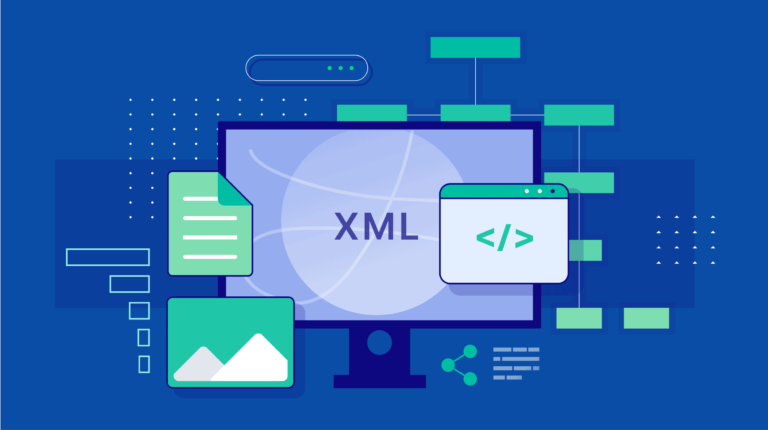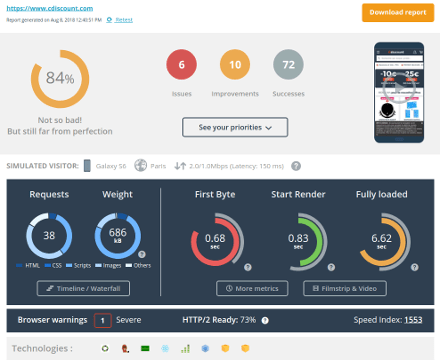Mastering Your SEO Game: Why a Meta Tags Analyzer is Essential for Your Website’s Success
When it comes to optimizing your website, meta tags might seem like just one more task on the long SEO checklist. But these little snippets of HTML actually pack a punch in terms of visibility and ranking. This is where a meta tags analyzer becomes essential—it’s the tool that helps you zero in on the effectiveness of your tags, pointing out what’s working and what’s not. From fine-tuning your title and description tags to polishing those often-overlooked keywords and image tags, a meta tags analyzer brings clarity and precision to your SEO game. Ready to dive into the world of meta tags and start optimizing like a pro? Let’s get started!
What is a Meta Tags Analyzer?
A meta tags analyzer is a tool that examines the meta tags on your web pages, analyzing their relevance, length, and effectiveness. By running your pages through this tool, you can get a clearer view of how your tags are affecting your site’s performance on search engines. From SEO audits to optimization tweaks, a meta tags analyzer provides essential insights into what’s working and what needs improvement.
Why Meta Tags Matter
Meta tags serve as a website’s “first impression” on search engines. When users conduct searches, the meta tags give them a preview of what they can expect from your page, influencing whether they click through. Here’s why meta tags are so crucial:
- SEO Ranking: Tags that match users’ search terms can give your site a boost on search engine results pages (SERPs).
- User Experience: Well-crafted meta descriptions and titles entice users to click, increasing your site’s traffic.
- Content Relevance: Search engines use meta tags to understand your page’s content, so optimized tags can help match your site with relevant searches.
The Key Types of Meta Tags (And Why to Analyze Them)
There’s more to meta tags than meets the eye! While you may be familiar with title tags and descriptions, there are several others that play an essential role in SEO. Here are the main types of meta tags you should know:
- Title Tag: Defines the title of your page, visible in search results and the browser tab. Titles should be concise yet informative.
- Meta Description: Provides a summary of your page. Crafting this well can greatly impact click-through rates.
- Meta Keywords: Once crucial, but now less so due to SEO evolution. However, including keywords still has benefits.
- Viewport Meta Tag: Essential for mobile responsiveness, which Google highly values.
- Alt Tags for Images: Helps search engines understand the content of your images, improving both accessibility and SEO.
Analyzing these tags allows you to tweak each one for maximum impact. With a meta tags analyzer, you’ll know if your title is too long, your description is vague, or if your alt tags need more keywords. In short, it’s a one-stop-shop for refining your SEO strategy.
How Does a Meta Tags Analyzer Work?
Curious how a meta tags analyzer gets the job done? Here’s a breakdown:
- Crawls Your Page: A meta tags analyzer scans your page, reading your meta tags to identify issues or optimization opportunities.
- Checks for Relevancy and Length: The tool assesses whether each tag is relevant to the page content and within the optimal length for SERPs.
- Reports Errors and Suggestions: After analyzing, it flags errors, such as missing tags or tags that are too long, and offers optimization suggestions.
- Provides a Score: Many analyzers offer an SEO “score,” giving you a measurable way to track improvements.
Why Use a Meta Tags Analyzer? The Benefits Are Huge!
If you’re not using a meta tags analyzer yet, you’re missing out on several key benefits that can make your website perform better on search engines and attract more traffic.
1. Saves Time and Effort
A meta tags analyzer automates the process of checking tags, saving you time compared to doing it manually. With an analyzer, you get a complete overview of each tag without sifting through HTML code.
2. Improves Search Engine Visibility
With insights from a meta tags analyzer, you can make your tags more SEO-friendly, increasing the chances of your site showing up on the first page of search results.
3. Helps Avoid Duplicate Content
Duplicate tags across multiple pages can confuse search engines and hurt your ranking. A meta tags analyzer identifies these issues so you can resolve them quickly.
4. Increases Click-Through Rates
Well-crafted meta tags make users more likely to click on your site in search results. A meta tags analyzer helps you craft engaging and relevant descriptions that boost CTR.
Choosing the Right Meta Tags Analyzer Tool
With so many analyzers available, which one should you pick? Here’s what to consider:
- Accuracy: Look for a tool known for providing accurate, real-time results.
- Ease of Use: A good analyzer should be user-friendly, even for beginners.
- Comprehensive Features: Make sure it covers all major meta tags, including title, description, alt, and keyword tags.
- Cost: Some analyzers offer free basic versions, while others charge for advanced features. Choose one that fits your budget and needs.
Popular meta tags analyzers include tools like Moz, Ahrefs, and SEMrush. Each offers unique features, so it’s worth exploring to find the best fit.
Step-by-Step Guide: Using a Meta Tags Analyzer for Optimization
Ready to give it a go? Here’s a straightforward guide to using a meta tags analyzer effectively:
Step 1: Run the Analyzer on Your Page
Start by entering your page URL into the analyzer tool. Hit “Analyze” to let it scan for meta tags.
Step 2: Review the Report
The tool will present a report showing the status of each meta tag, including any errors, missing tags, or areas for improvement.
Step 3: Tweak Your Tags
Using the suggestions, update your meta tags to improve clarity, length, and relevancy. Ensure that each tag accurately reflects the content on that page.
Step 4: Re-Analyze
Once you’ve made adjustments, run the analyzer again. This step ensures that your updates align with SEO best practices and are free from errors.
Common Issues a Meta Tags Analyzer Can Uncover
Even a well-optimized site can run into meta tag issues. Here are a few common problems that meta tags analyzers help to solve:
- Missing Tags: Many pages lack basic meta tags, which can hurt visibility.
- Overly Long Titles or Descriptions: Search engines may cut off long tags, so they should stay within the ideal character count.
- Keyword Stuffing: Too many keywords can hurt SEO; a balanced approach is best.
- Poorly Written Descriptions: Bland descriptions won’t engage users. A meta tags analyzer highlights descriptions that need more appeal.
FAQs About Meta Tags and Analyzers
1. What’s the ideal length for a meta description?
Most search engines recommend keeping meta descriptions between 150-160 characters.
2. Do meta keywords still matter?
Meta keywords are no longer a major ranking factor, but including a few relevant ones can help with search engine understanding.
3. How often should I use a meta tags analyzer?
Running an analysis monthly or after significant site changes is generally a good practice.
4. Can a meta tags analyzer improve my ranking directly?
Not directly, but by optimizing your tags, you can increase click-through rates and relevancy, both of which contribute to better rankings.
Wrapping Up: A Meta Tags Analyzer is Your SEO Secret Weapon
A meta tags analyzer is a must-have for anyone serious about SEO. By providing insights into how well your tags are performing and pinpointing areas for improvement, this tool helps your site become more visible, clickable, and accessible. From increased traffic to improved search engine rankings, the benefits of using a meta tags analyzer are significant.
So, are you ready to harness the power of your meta tags? Start using a meta tags analyzer and watch as your website climbs the ranks, attracts more traffic, and improves engagement






Your style is very unique in comparison to other folks I have
read stuff from. I appreciate you for posting when you’ve got
the opportunity, Guess I’ll just book mark this web site.
Also visit my homepage; jkltoto